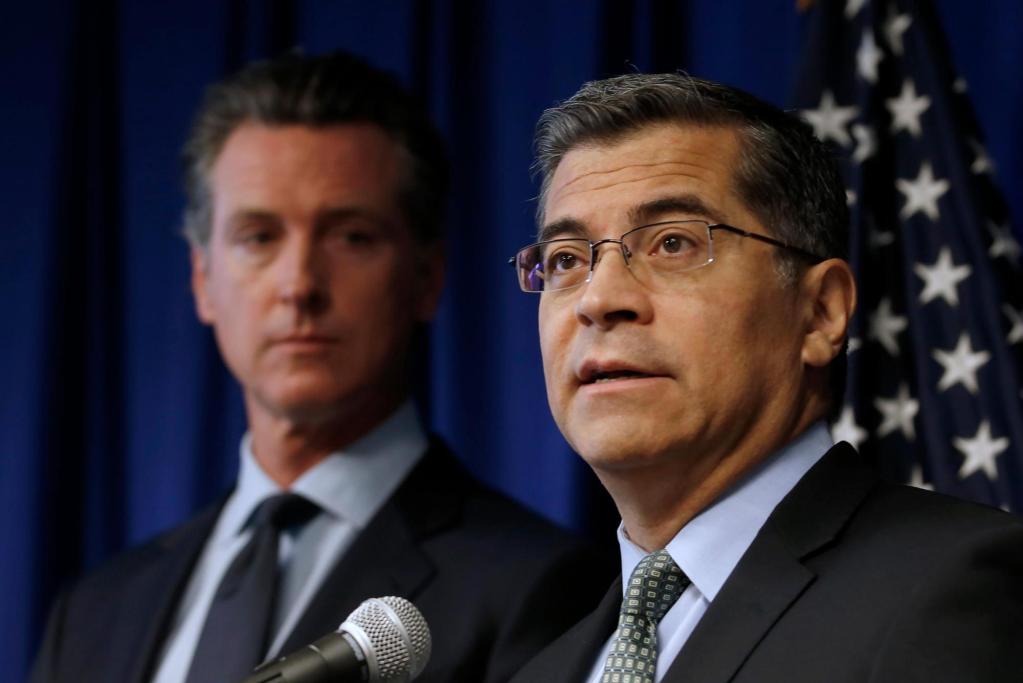Politics
California Political Landscape Faces Corruption Charges Amid Scheme

Former chief of staff to California Governor Gavin Newsom, Dana Williamson, has been arrested on federal charges of public corruption. The allegations include conspiracy and tax evasion, stirring a wave of disbelief throughout state political circles. This scandal has raised serious questions about the legality of campaign financing practices in California, particularly regarding the use of campaign funds for personal gain.
Williamson is accused of orchestrating a scheme that diverted money from a campaign account into the hands of individuals allegedly holding no-show jobs. This scheme reportedly involved funneling funds through various consultants before reaching their final destination. The federal government asserts that such actions violate campaign finance laws, which prohibit the misuse of campaign contributions.
The charges against Williamson highlight a broader issue within California politics. Despite the serious nature of these allegations, there have been no state prosecutions or audits regarding payments that raise eyebrows, such as the reported $10,000-per-month disbursements from a campaign committee owned by former California Attorney General Xavier Becerra. At the time of these transactions, Becerra was serving as Secretary of Health and Human Services under the Biden administration and is currently preparing for a gubernatorial run in 2026. His campaign committee for the 2030 race for Superintendent of Public Instruction remains active, boasting over $1.4 million in cash as of June 30, 2023.
Political contributions in California can often appear convoluted. For instance, state Senate leader Mike McGuire maintains three separate active campaign committees while preparing for a congressional bid. As of June 30, his various committees reported over $1.1 million in one account alone, illustrating the complexities of campaign financing in the state.
Interestingly, California’s political landscape has seen instances where candidates have exploited loopholes in campaign finance regulations. In August 2019, Assemblyman Todd Gloria faced scrutiny after incorrectly filing paperwork. This allowed him to transfer approximately $300,000 from a past campaign to a non-existent committee for a future election, sidestepping potential restrictions on surplus funds. Despite the infraction, Gloria now serves as the mayor of San Diego.
The California Secretary of State has documented numerous campaign committees where current officials have parked funds. For instance, Los Angeles City Councilman Adrin Nazarian reported having $636,466 in his 2030 campaign account, with expenditures primarily directed towards taxes and party donations.
Williamson has pleaded not guilty to the charges against her. In contrast, two other individuals implicated in the scheme, lobbyist Greg Campbell and former Becerra chief of staff Sean McCluskie, have agreed to plea deals, indicating a potential unraveling of the broader network involved.
Williamson’s attorney, McGregor Scott, stated that the FBI had previously approached her for assistance with an investigation into Governor Newsom, which she declined, asserting she had not observed any misconduct related to the governor.
The issue of “behested payments,” contributions solicited by elected officials for purported charitable or governmental purposes, remains a controversial aspect of California politics. Governor Newsom has utilized this practice to direct over $3.7 million to his wife’s organization, the California Partners Project. This funding has come from various sources, including significant contributions from organizations such as the California Chamber of Commerce and Blue Shield of California.
In total, Newsom has received upwards of $5.6 million from the California Endowment, supporting initiatives ranging from COVID relief to migrant assistance. Such financial maneuvers raise ethical questions about the intersection of politics and personal gain, particularly when viewed against the backdrop of existing laws.
As the legal proceedings unfold, the implications for California’s political landscape could be significant. The charges against Williamson and the scrutiny of campaign financing practices reveal a system that, while legal under California law, may warrant further examination for the sake of transparency and accountability. The ongoing developments will likely keep California’s political arena under close watch in the coming months.
-

 Science2 weeks ago
Science2 weeks agoUniversity of Hawaiʻi Joins $25.6M AI Project to Monitor Disasters
-

 Business3 weeks ago
Business3 weeks agoForeign Inflows into Japan Stocks Surge to ¥1.34 Trillion
-

 Top Stories3 weeks ago
Top Stories3 weeks agoMarc Buoniconti’s Legacy: 40 Years Later, Lives Transformed
-

 Top Stories3 weeks ago
Top Stories3 weeks agoBOYNEXTDOOR’s Jaehyun Faces Backlash Amid BTS-TWICE Controversy
-

 Health3 weeks ago
Health3 weeks agoInnovative Surgery Restores Confidence for Breast Cancer Patients
-

 Sports1 month ago
Sports1 month agoSteve Kerr Supports Jonathan Kuminga After Ejection in Preseason Game
-

 Science1 month ago
Science1 month agoChicago’s Viral ‘Rat Hole’ Likely Created by Squirrel, Study Reveals
-

 Entertainment1 month ago
Entertainment1 month agoZoe Saldana Advocates for James Cameron’s Avatar Documentary
-

 Lifestyle1 month ago
Lifestyle1 month agoKelsea Ballerini Launches ‘Burn the Baggage’ Candle with Ranger Station
-

 Top Stories3 weeks ago
Top Stories3 weeks agoCarson Wentz Out for Season After Shoulder Surgery: Urgent Update
-

 Politics1 month ago
Politics1 month agoDallin H. Oaks Assumes Leadership of Latter-day Saints Church
-

 Lifestyle1 month ago
Lifestyle1 month agoDua Lipa Celebrates Passing GCSE Spanish During World Tour









